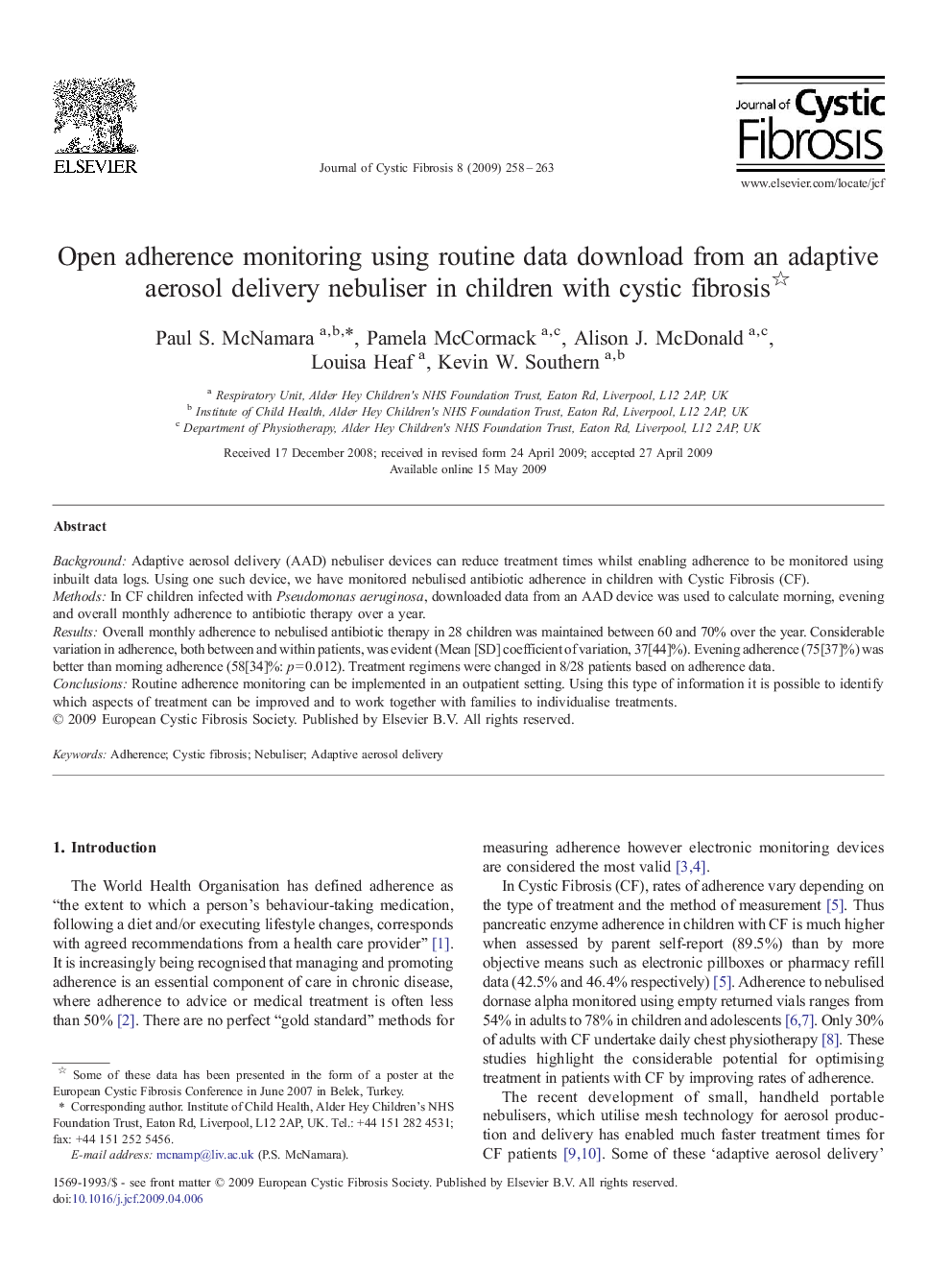| Article ID | Journal | Published Year | Pages | File Type |
|---|---|---|---|---|
| 4208820 | Journal of Cystic Fibrosis | 2009 | 6 Pages |
BackgroundAdaptive aerosol delivery (AAD) nebuliser devices can reduce treatment times whilst enabling adherence to be monitored using inbuilt data logs. Using one such device, we have monitored nebulised antibiotic adherence in children with Cystic Fibrosis (CF).MethodsIn CF children infected with Pseudomonas aeruginosa, downloaded data from an AAD device was used to calculate morning, evening and overall monthly adherence to antibiotic therapy over a year.ResultsOverall monthly adherence to nebulised antibiotic therapy in 28 children was maintained between 60 and 70% over the year. Considerable variation in adherence, both between and within patients, was evident (Mean [SD] coefficient of variation, 37[44]%). Evening adherence (75[37]%) was better than morning adherence (58[34]%: p = 0.012). Treatment regimens were changed in 8/28 patients based on adherence data.ConclusionsRoutine adherence monitoring can be implemented in an outpatient setting. Using this type of information it is possible to identify which aspects of treatment can be improved and to work together with families to individualise treatments.
